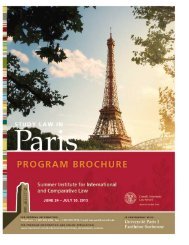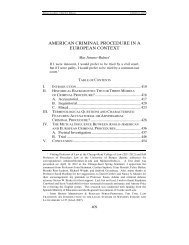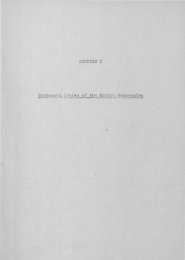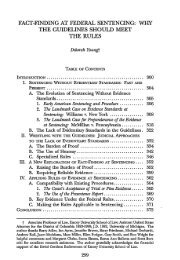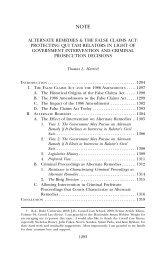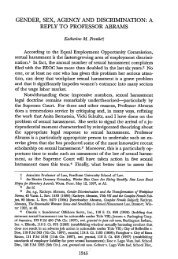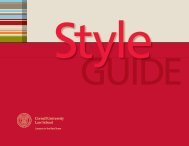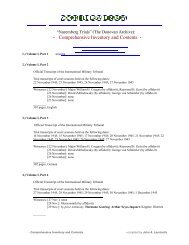JUDICIAL CLERKSHIP HANDBOOK - Cornell University Law School
JUDICIAL CLERKSHIP HANDBOOK - Cornell University Law School
JUDICIAL CLERKSHIP HANDBOOK - Cornell University Law School
Create successful ePaper yourself
Turn your PDF publications into a flip-book with our unique Google optimized e-Paper software.
Although there are no guarantees about the format an individual interview will take, you<br />
should always be prepared with some questions. You will want to know how the judge<br />
assigns cases, whether the judge expects all reports in writing, and if you will have the<br />
chance to observe court proceedings. In addition to the references listed in Appendix N,<br />
good background reading that will help you in formulating questions are evaluations<br />
submitted by alumni/ae who have clerked. Log on to Symplicity (https://law‐cornell‐<br />
csm.symplicity.com/students/index.php) and click the “clerkships” tab. Then select<br />
“clerkship evaluation.”<br />
If you do have a chance to meet with the current clerk(s), the meeting may be relatively<br />
informal. However, do not be lulled into a false sense of security: it is still part of the<br />
interview. Clerks often participate in the selection process and are often very determined<br />
to find their judge the Aright@ new clerks. If time permits, a carefully written thank‐you<br />
letter is appropriate; see Appendix Q for a good example.<br />
EXPECTATIONS ABOUT ACCEPTANCE – FEDERAL <strong>CLERKSHIP</strong>S<br />
Perhaps most importantly, you should bear in mind that the informal protocols governing<br />
offers and acceptances of clerkships are very different from those you are familiar with and<br />
relied on during the search for a position in a law firm, government agency or public<br />
interest organization. In contrast to other employers, judges have every expectation that<br />
you will accept their offer. Although judges are advised by the Judicial Conference that<br />
AGenerally, it is for the judge to determine the terms upon which an offer is extended.<br />
However, judges are encouraged not to require an applicant to accept an offer immediately<br />
without reasonable time to weigh it against other viable options that remain open to the<br />
applicant;” the reality is that judges are accustomed to deference, and many will expect you<br />
to accept their offer on the spot. Be prepared for a judge to call you with an offer. Some<br />
judges will even make an offer at the end of the interview or within a day or so thereafter.<br />
Telling a judge you will get back to him or her can, aside from costing you that offer, tarnish<br />
the <strong>Law</strong> <strong>School</strong>=s relationship with the judge and may cause the judge to pass over future<br />
<strong>Cornell</strong> applicants. Moreover, if you eventually accept the offer, having put the judge on<br />
hold can get your relationship off to a bumpy start.<br />
On occasion, your interview with the judge will convince you that clerking for him or her<br />
would clearly be unwise. The ideal course under such circumstances is to write a letter and<br />
withdraw as graciously as possible as soon as possible after the interview without indicating<br />
your unfavorable reaction to the judge. In this way you will avoid placing yourself in a<br />
position of having to refuse an offer. In a potentially awkward situation such as this, you<br />
should promptly consult with someone on the Judicial Clerkship Committee for advice on<br />
how to proceed.<br />
Because judges will expect you to accept their offer, you might try to arrange your<br />
interviews (to the limited extent possible) so that you interview first with those judges for<br />
whom you think you would most prefer to clerk. Of course, this will often be impossible,<br />
23 | P age



